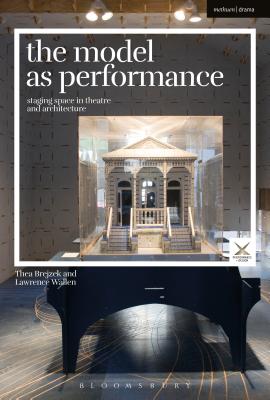The Model as Performance investigates the history and development of the scale model from the Renaissance to the present from a scenographic perspective and a performative paradigm that explores what the model can do and how it is used in theatre and architecture. It provides a comprehensive historical context and theoretical framework for theatre scholars, scenographers, artists and architects interested in the model’s reality-producing capacity and its recent emergence in contemporary art practice and exhibition. For the undergraduate student, it provides a historical survey of the model, and to the postgraduate student, it opens up a new methodological approach.
Introducing a typology of the scale model beyond the iterative and the representative model, the authors identify the autonomous model as a provocative construction between past and present, idea and reality that challenges and redefines the relationship between object, viewer and environment. Case studies include Brunelleschi’s dome models and Bel Geddes’ Futurama, Mies van der Rohe’s mock ups and Zumthor’s atmospheric models, Anna Viebrock’s life size boxes and Herzog & de Meuron’s miniature styrofoam exhibits.












